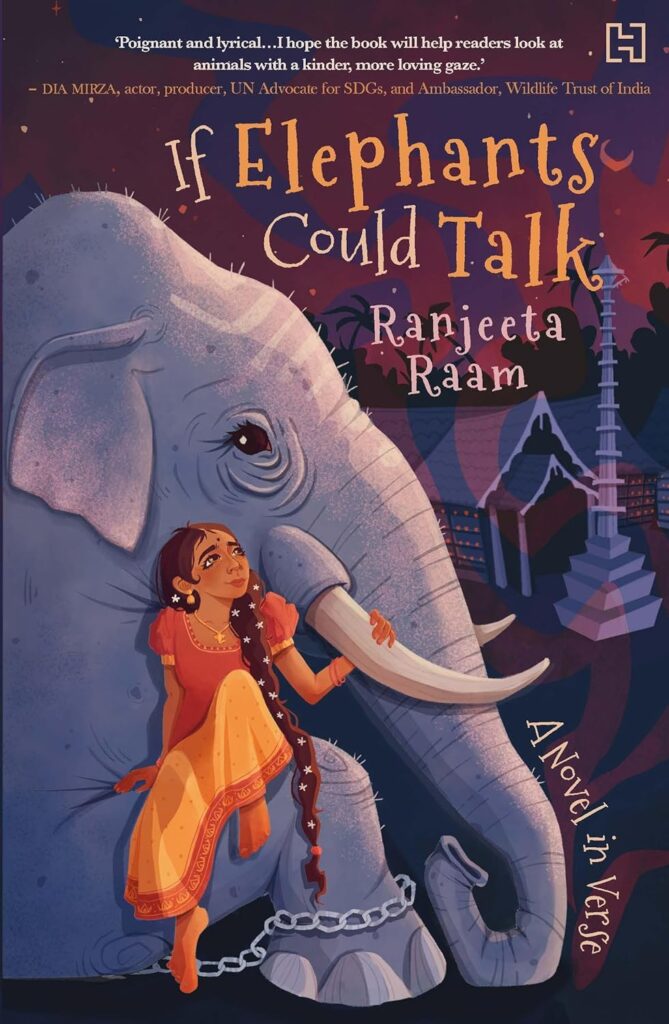Temple elephants. I’ve always hated the fact that they exist. I remember during a dance tour once, when everyone lined up to be blessed by the elephant. I stayed away. And like Meenakshi in If Elephants Could Talk, I didn’t say a thing. I didn’t know how to form my words or what to say.
Ever since Meenakshi’s mother died, she hasn’t spoken. People make fun of her, calling her moonga, as well as all kinds of other names. Yet, Meenu can’t find her words. She cannot respond to questions in class, and she cannot answer the bullies.
Through it all, her Acha is a pillar of strength, as is her Anju chechi, all the way in Delhi. With their unwavering support, Meenu finally finds a way to express herself.
If Elephants Could Talk touches upon two themes close to my heart—animals and dance. And perhaps that was why I was left with so many questions. How is Meenakshi’s dance teacher, her Maashe, okay with her missing so much practice? What are the rules of the class, where some girls seem to have their dupattas on their right shoulders while others have them on their left? How old is Meenakshi and how long has she been learning? All in all, I found myself curious about all the details of the setting and would have loved more descriptions of this place, somewhere between a village and a city.
Despite my questions, the theme and the verse form drew me in. Meenakshi’s changing emotions ring true—her love for Ganeshan, her anger, her guilt. Her character arc is powerfully drawn, showing us how grief makes her someone people don’t quite know how to deal with. The verse form kept me reading, and the words dancing on the page made me smile, rejoicing in the power of poetry. If Elephants Could Talk is a sensitively told story, one that draws you into a world where we must question our activism and our silence.
| Title | If Elephants Could Talk |
| Author | Ranjeeta Raam |
| Tags | Middle Grade, Verse Novel |
| Ages | 10+ |
| Rating (out of 5) | 4 |


Leave a Reply